Investing In Digital Real Estate: Domains, Metaverse Land, and Fractional Ownership
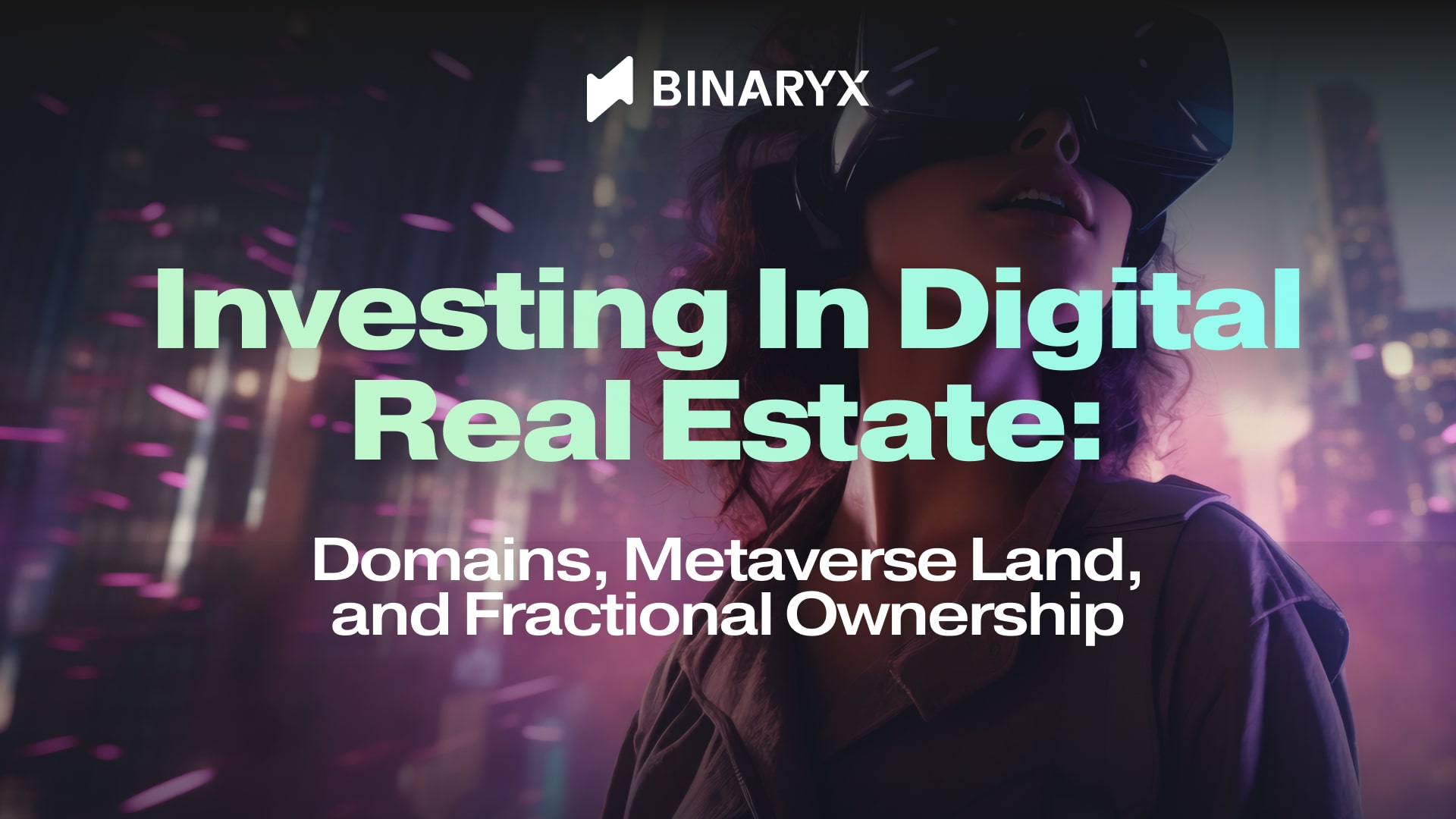
In an era where digital assets are rapidly transforming traditional markets, nearly everything can find its digital counterpart—and real estate is no exception. Digital real estate, ranging from virtual land in the metaverse to tokenized real-world properties, opens up a market rich with opportunities for forward-thinking investors. In this article, we'll explore what digital real estate is, how you can invest in it, and whether it holds the potential for lucrative returns.
What Is Digital Real Estate?
So what exactly is digital real estate? This isn't a trivial question, especially since many definitions in other articles mistakenly lump in cryptocurrencies and nearly anything else that exists in the digital space. However, digital real estate should share key characteristics with physical real estate—most notably, an immovable or relatively fixed nature within its environment. Unlike other digital assets such as cryptocurrencies and stocks, which are fluid and easily transferable, digital real estate should occupy a specific, unchanging location within a digital landscape. For example, a domain name can be considered digital real estate because, like traditional property, it is tied to a specific "location" and is distinct from other digital assets. Also, digital real estate may represent certain aspects of physical properties, such as characteristics and ownership rights, in digital form.
Thus, digital properties can be defined as a class of digital assets that represent specific, identifiable locations within virtual environments or are tokenized representations of physical properties. These assets—whether domains, virtual land in the metaverse, or blockchain-based tokens tied to physical properties—are characterized by their relative immovability within their worlds. This fixed or difficult-to-move nature closely aligns them with the traditional concept of real estate, reflecting similar characteristics in the digital world.
How to Invest in Digital Real Estate?
To effectively invest in and profit from digital properties, it's essential to first understand the different types of properties within this digital landscape. Let’s break them down into two categories.
1. Virtual-Only Real Estate Assets
Virtual-only real estate assets are digital properties that exist exclusively within virtual environments, where ownership and value are tied to specific, immovable locations within those spaces.
Metaverse Land
Metaverse real estate commonly refers to virtual land within gaming worlds like The Sandbox and Decentraland, which garnered significant attention in 2021-2022. Essentially, this land is a piece of code that represents a plot within a virtual world, allowing it to be owned, developed, and traded on the blockchain. Often called "land," it can take many forms due to extensive customization—ranging from buildings to entire virtual cities, including offices and even embassies. For instance, in 2022, Dubai's Virtual Assets Regulatory Authority (VARA) established an official presence in The Sandbox by acquiring land and launching MetaHQ.
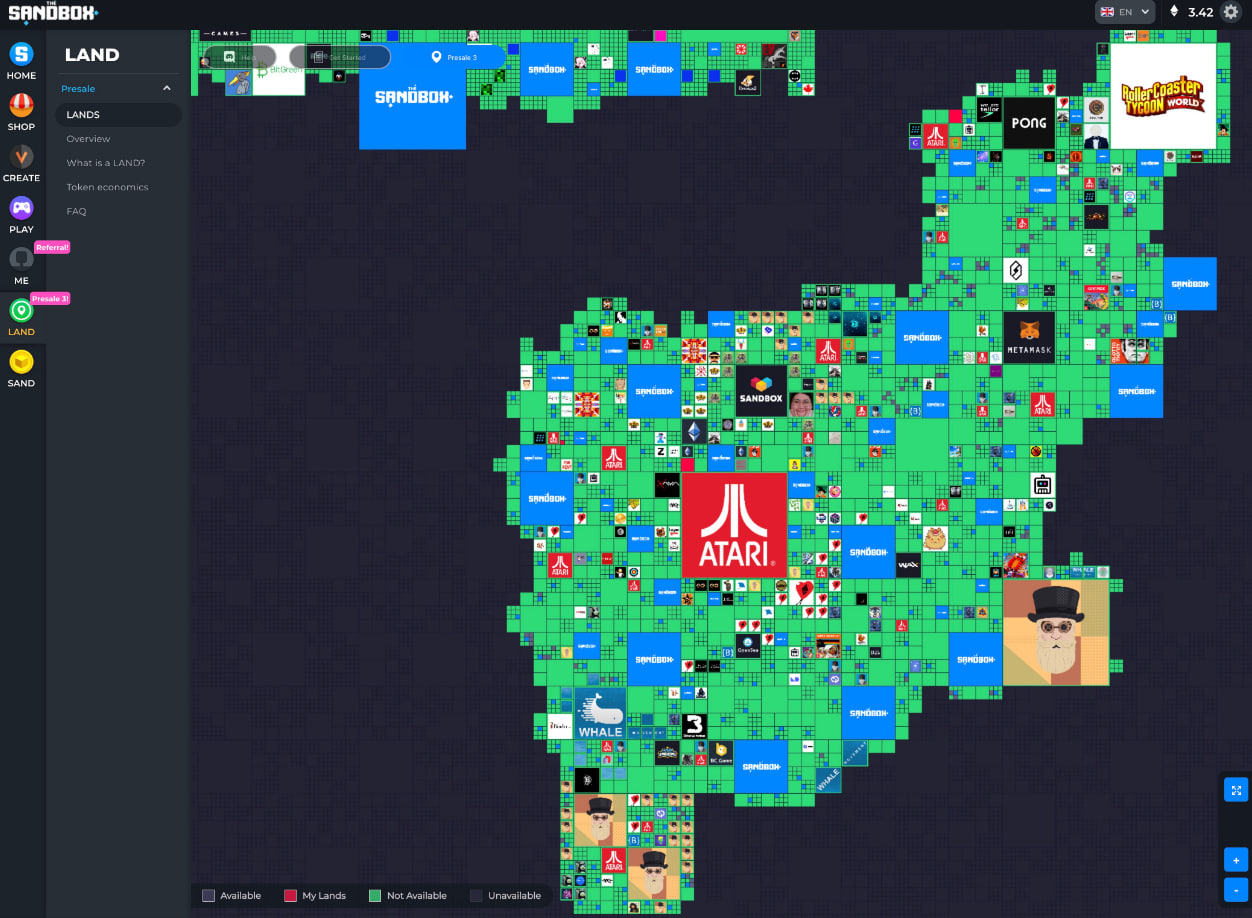
While the initial hype surrounding metaverse land has cooled, the concept still holds significant potential, especially as virtual reality (VR) and augmented reality (AR) technologies advance. To invest there, you can purchase land using cryptocurrency within these virtual worlds. However, it's important to note that, at present, no existing metaverses are guaranteed to remain relevant even in the next two years. It may be wise to wait for a metaverse that attracts millions of daily active users to appear before making substantial investments.
Web Domains
Web domains, whether traditional or blockchain-based, represent another essential form of virtual property. Classic domains function as familiar digital addresses on the internet, while blockchain-based domains, like Ethereum Name Service (ENS) domains, offer expanded functionality and unique use cases. Beyond launching a website, blockchain domains can act as wallet addresses and form the foundation of your crypto identity. Importantly, they are permissionless to own, trade, and develop, offering a new level of autonomy.
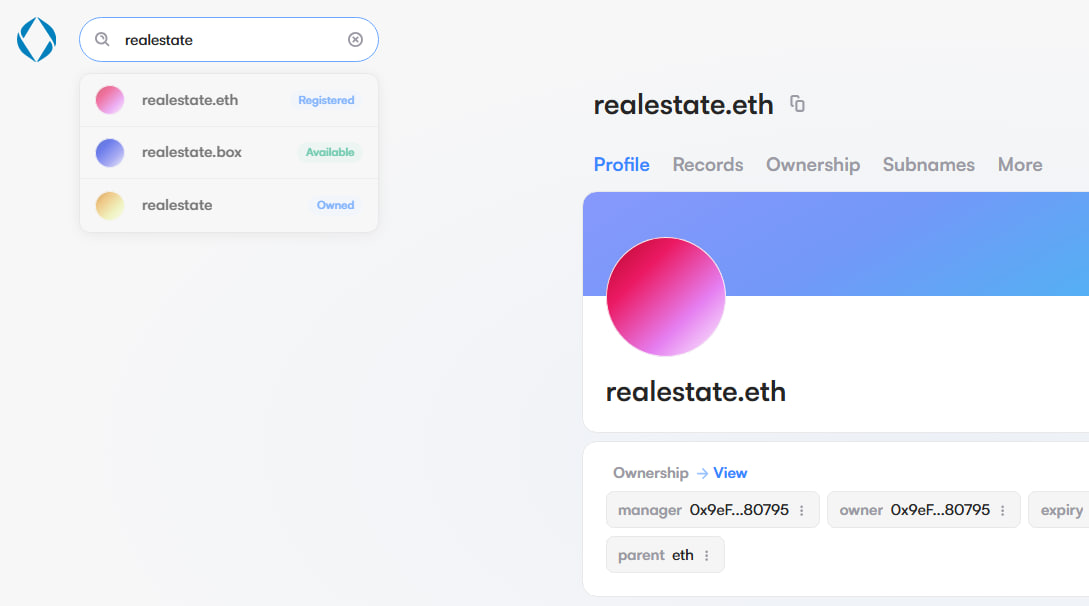
Domains can be valuable assets, especially premium ones that are short, memorable, and rich in keywords. Owning a domain provides the opportunity to launch websites, which can serve as online businesses or “digital commercial real estate”. While investing in traditional domains can be challenging—since most premium names are already claimed—the emerging blockchain-based domain infrastructure presents a promising new frontier. Though still underdeveloped, it offers better appreciation potential. Unclaimed Web3 domains can be registered and leased for a set number of years at fixed rates, while claimed domains are available for purchase on secondary markets.
2. Tokenized Real Estate
Tokenization is the process of representing the ownership of physical properties on the blockchain, where ownership comes either in the form of a single NFT token or is divided into fractional tokens.
NFT Real Estate
NFT tokenization involves converting ownership of physical properties into non-fungible tokens (NFTs) on the blockchain. Each property is uniquely represented by an NFT, reflecting its individual characteristics and ownership status. These NFTs can be dynamic, meaning they can be modified to reflect changes in the property’s condition or ownership. In theory, transferring ownership could be as simple as transferring the corresponding NFT. However, the infrastructure needed to securely and automatically manage such transactions is still in its early stages, making widespread adoption unlikely in the near future.
Currently, NFT-based real estate remains a niche yet intriguing way to acquire physical property. Propy, one of the pioneering platforms in this space, has created an NFT marketplace for real estate, hosting specific sales and auctions. For instance, in a 2022 auction, a Florida home was sold as an NFT for 210 ETH, with ownership rights seamlessly transferred alongside the NFT.
Fractional Properties
Fractional real estate tokenization is a more established, practical, and scalable approach to investing in digital real estate. This method involves dividing a property’s ownership into multiple tokens, similar to issuing shares in a company. Each token directly represents a specific portion of the property’s ownership and its associated income. This approach democratizes traditional real estate investment, allowing investors to buy into properties with smaller amounts of capital while benefiting from rental income.
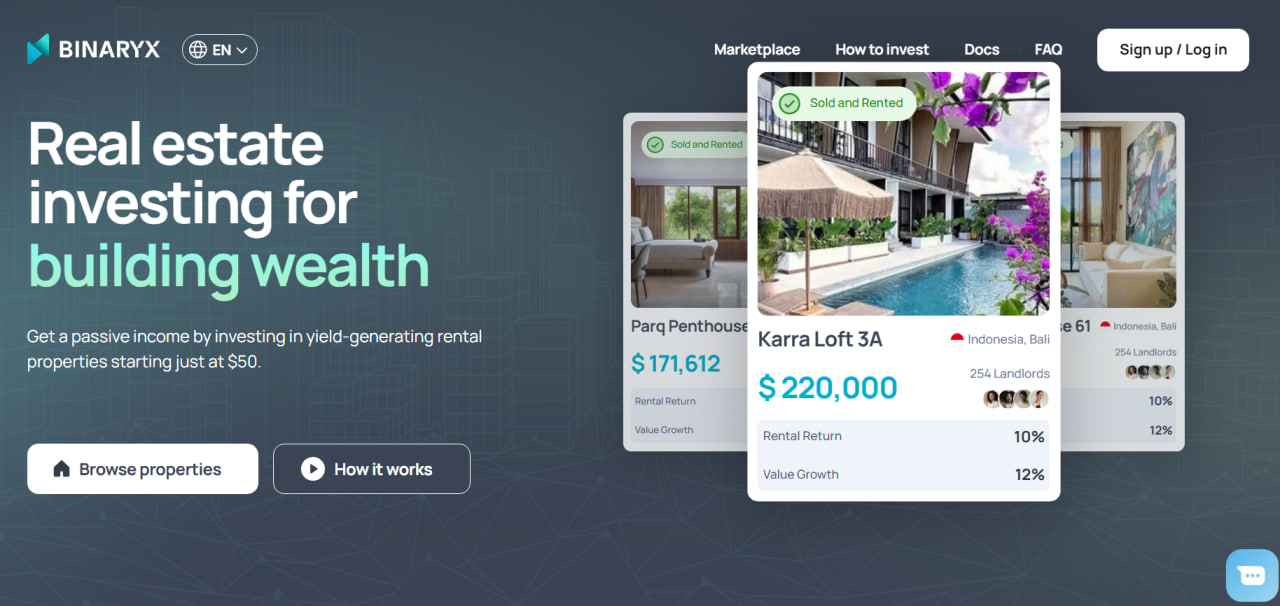
Platforms like Binaryx facilitate this type of investment, enabling you to purchase fractional shares of properties to earn rental income or participate in construction investments. When a property is tokenized on the Binaryx Platform, a limited liability company (LLC) is established to hold the property title. The shares of this LLC are then tokenized and offered to investors. For example, a rental villa in Bali might be divided into 3,900 tokens, each priced at $50, allowing you to participate in the property’s passive income appreciation without purchasing the entire asset. Explore the platform to see how it works in practice.
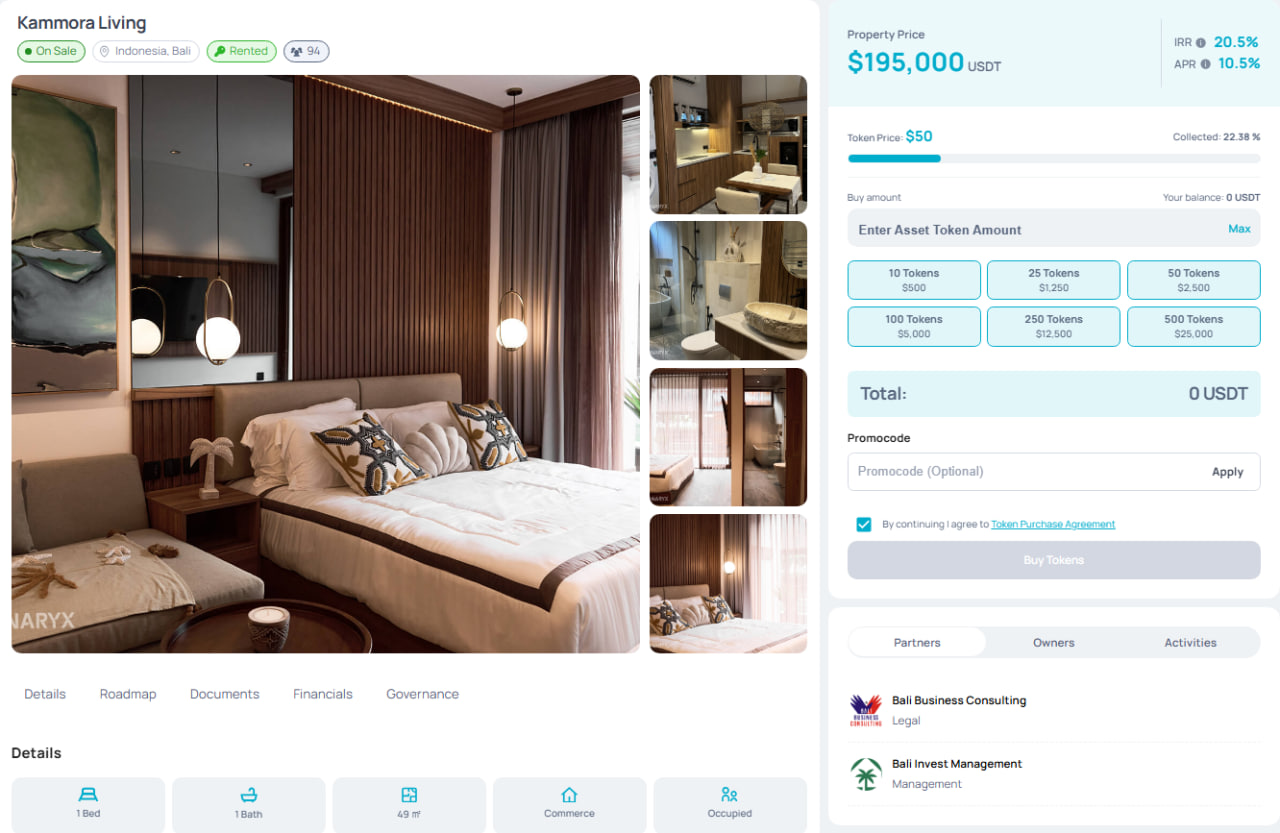
Is Digital Real Estate Worth It?
When it comes to metaverse properties, the challenges significantly diminish their attractiveness. While the concept is intriguing, it's still too early for these virtual assets to gain real, lasting value beyond speculative hype. The biggest issue is the uncertainty surrounding the long-term relevance and user base of any given metaverse world. Without widespread adoption and consistent user engagement, these digital plots remain useless assets with little to no foundational value.
While talking about NFT real estate, despite its innovation, NFT adjustment doesn’t provide substantial advantages over traditional property acquisition methods. From an investment standpoint, buying a property through an NFT is essentially the same as purchasing it through conventional means, with the main difference being a slightly faster transaction process—not enough to justify it investment-wise.
On the other hand, domains and fractional property tokens are currently the most viable investments within the digital real estate space. Domains, whether traditional or blockchain-based, can serve as the foundation for launching websites that operate as online businesses or can be flipped for profit as their value appreciates.
Fractional real estate tokenization, meanwhile, opens up the real estate market to investors of all sizes, allowing you to acquire stakes in valuable properties with minimal capital. Fractional property tokens allow you to enjoy the benefits of property ownership—such as rental income and property appreciation—proportionate to the invested amount, making it a practical and scalable option for diversification.
Conclusion
Digital real estate presents a diverse and evolving landscape for investors, with opportunities ranging from virtual land in the metaverse to tokenized shares of physical properties. While speculative assets like metaverse land and NFT real estate are intriguing, they come with significant risks and uncertainties. The real potential lies in more established and practical investments, such as web domains and fractional real estate tokens, which offer tangible value and scalability. As the digital world continues to expand, these assets become increasingly important, providing investors with new ways to diversify and grow their portfolios. If you want to leverage virtual property, try out the Binaryx Platform.
Articles you may be interested in

.jpg)
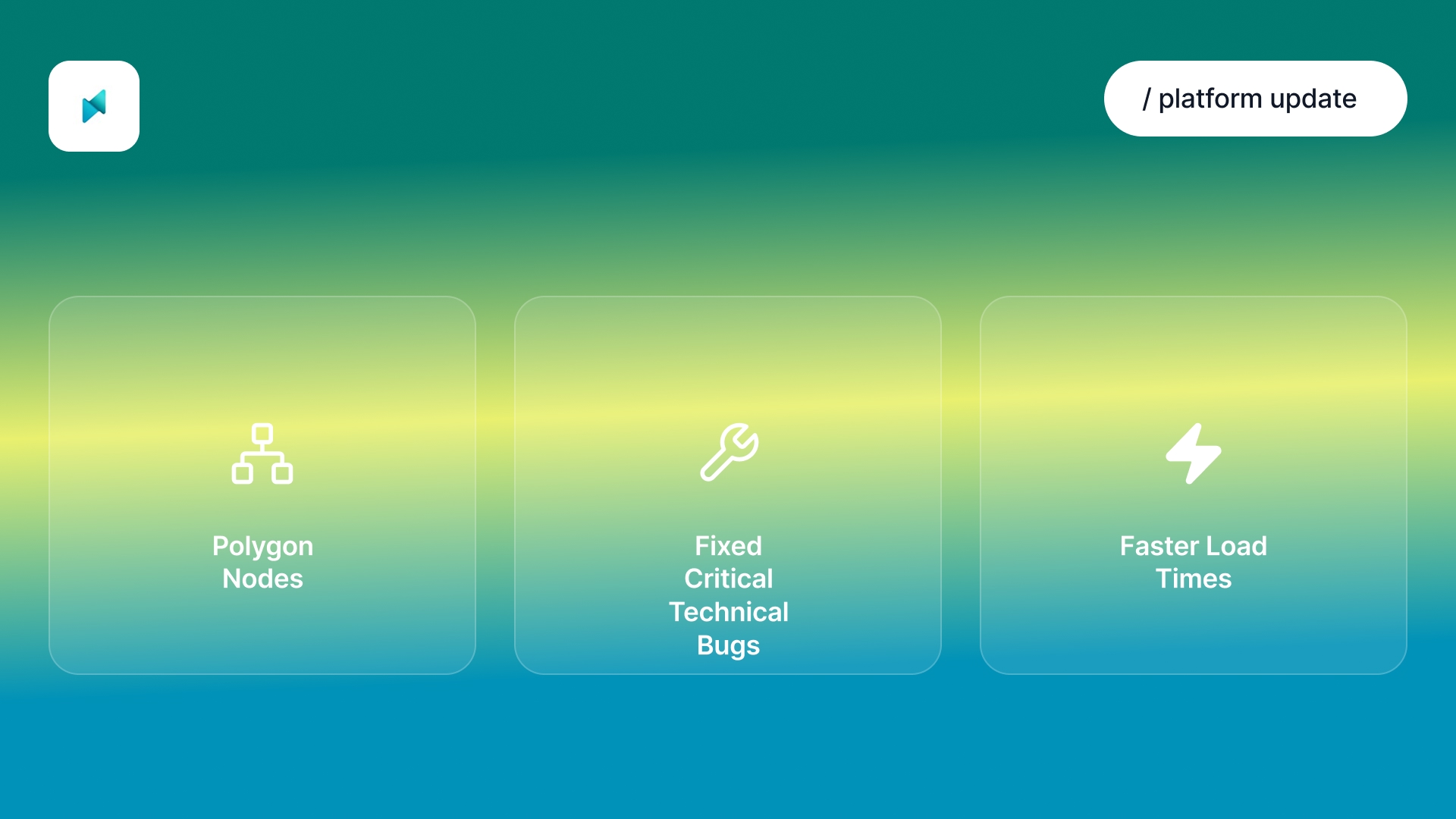
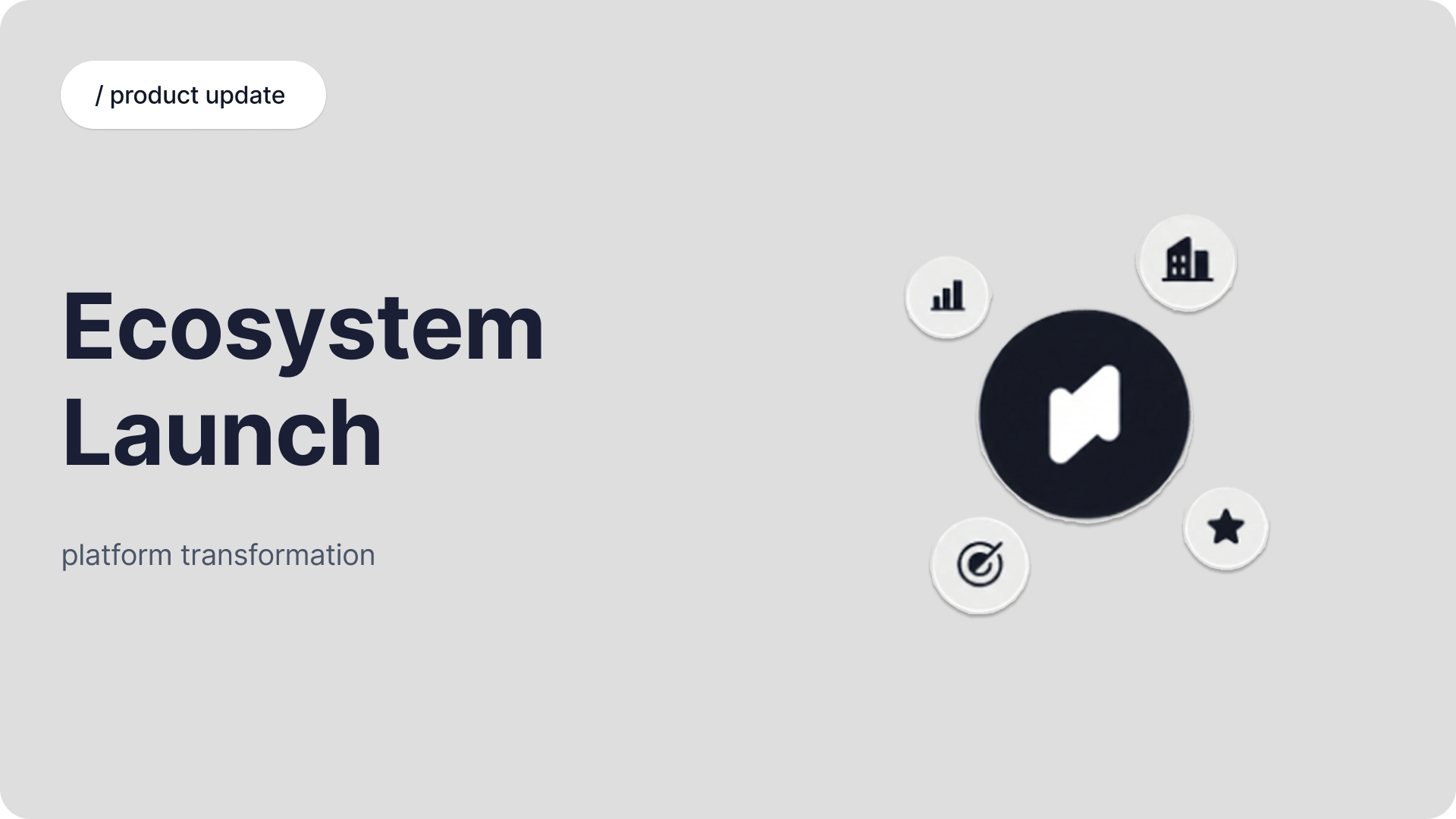
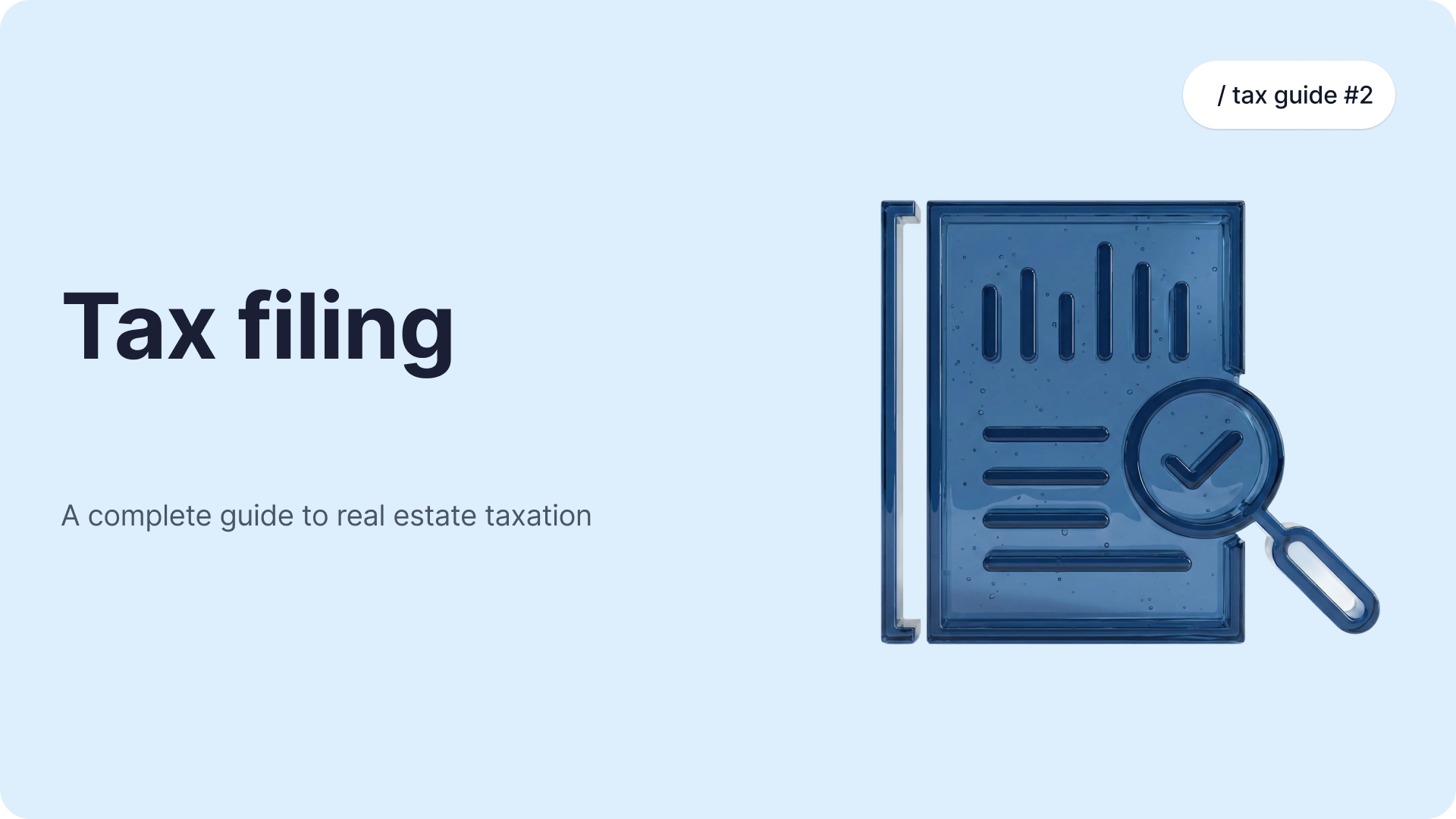
.png)
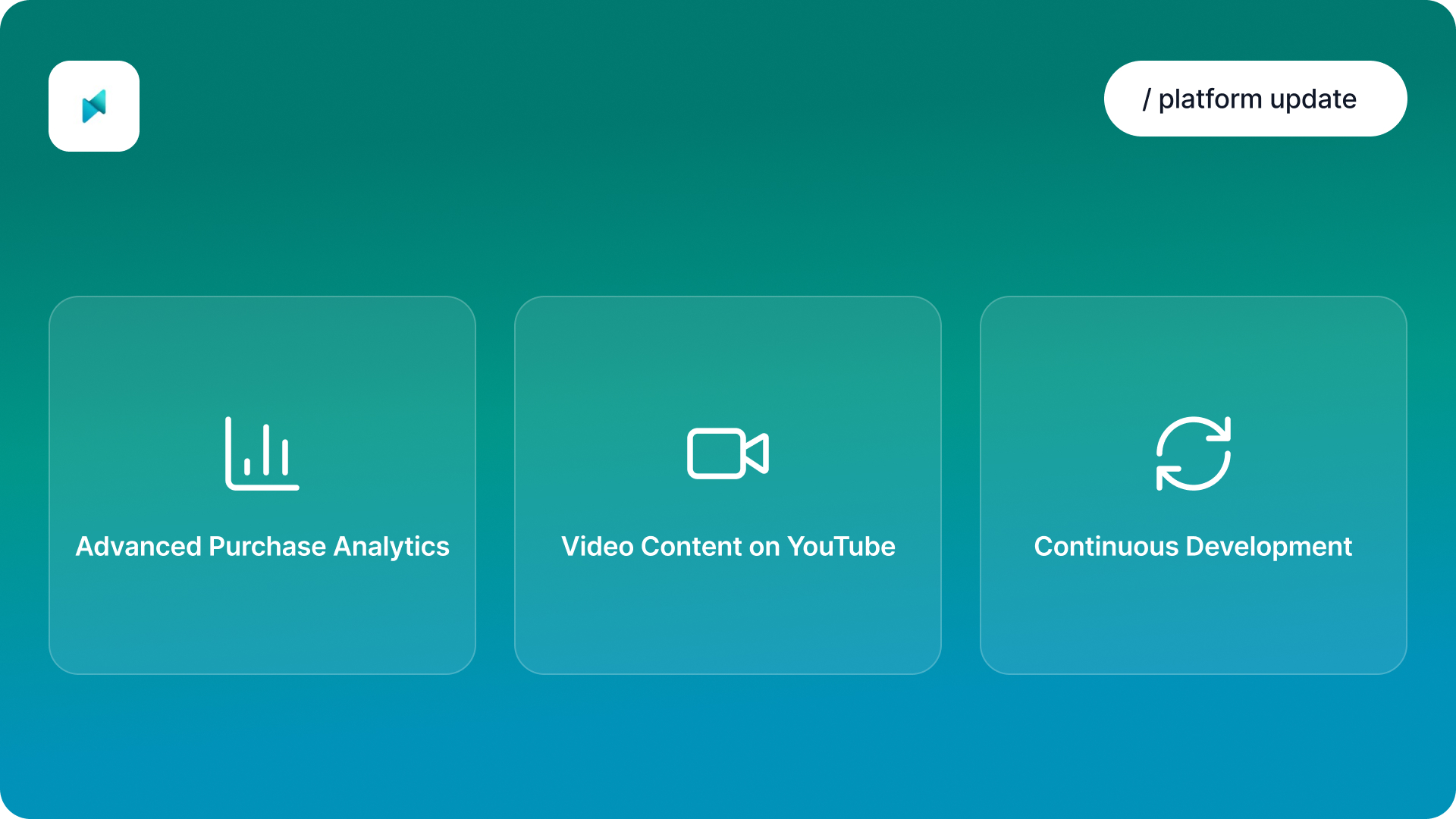
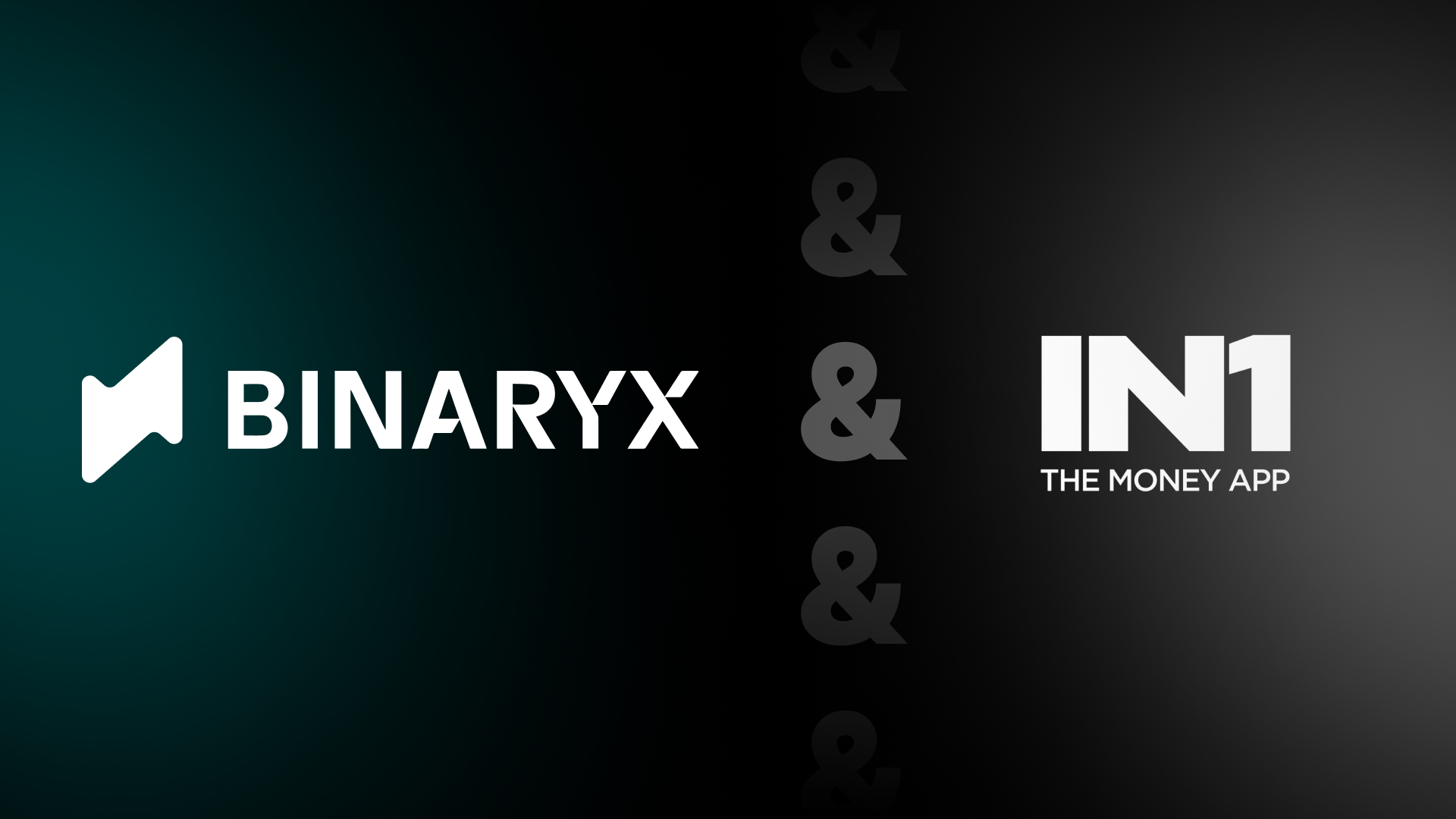
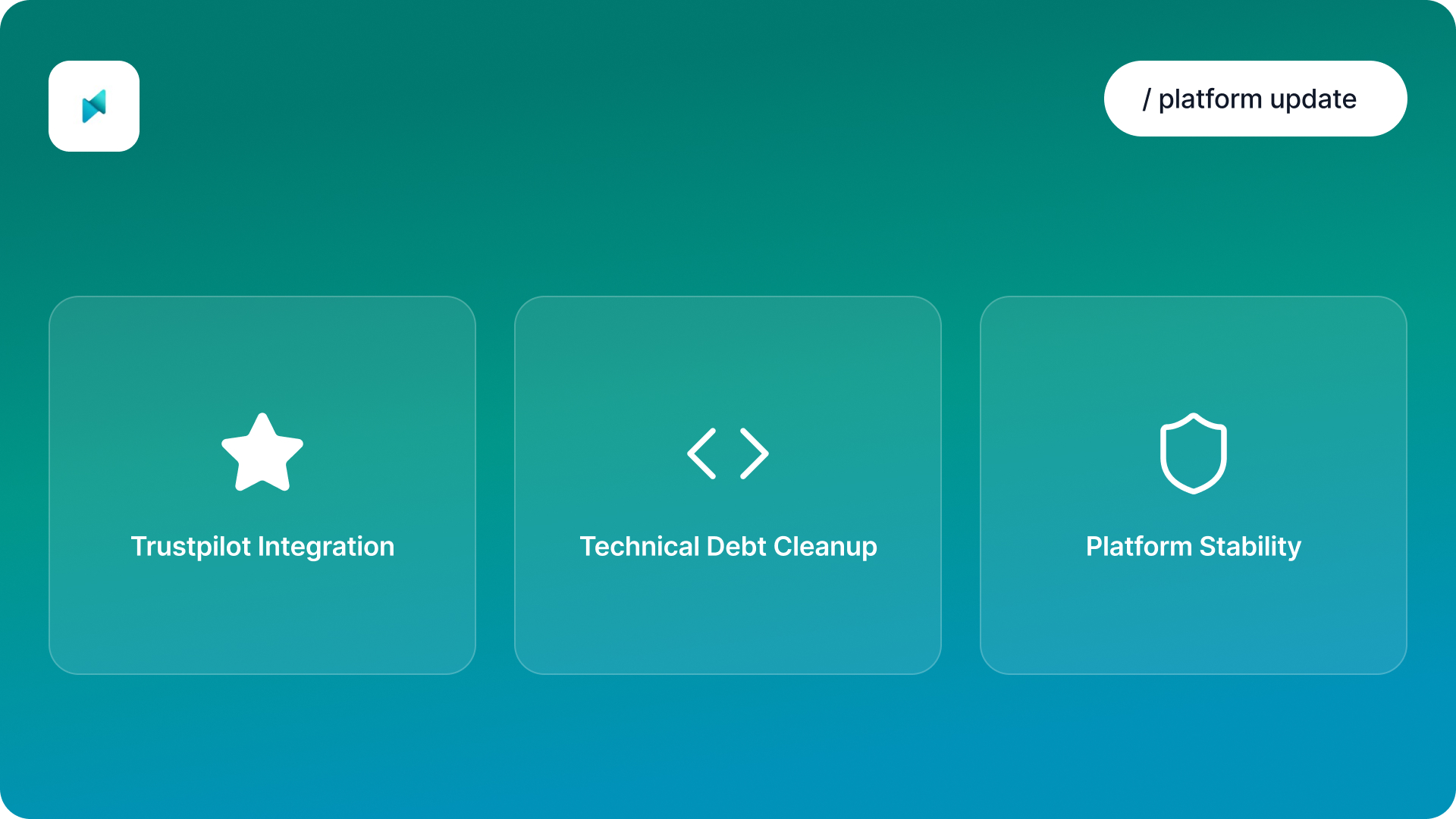
.png)

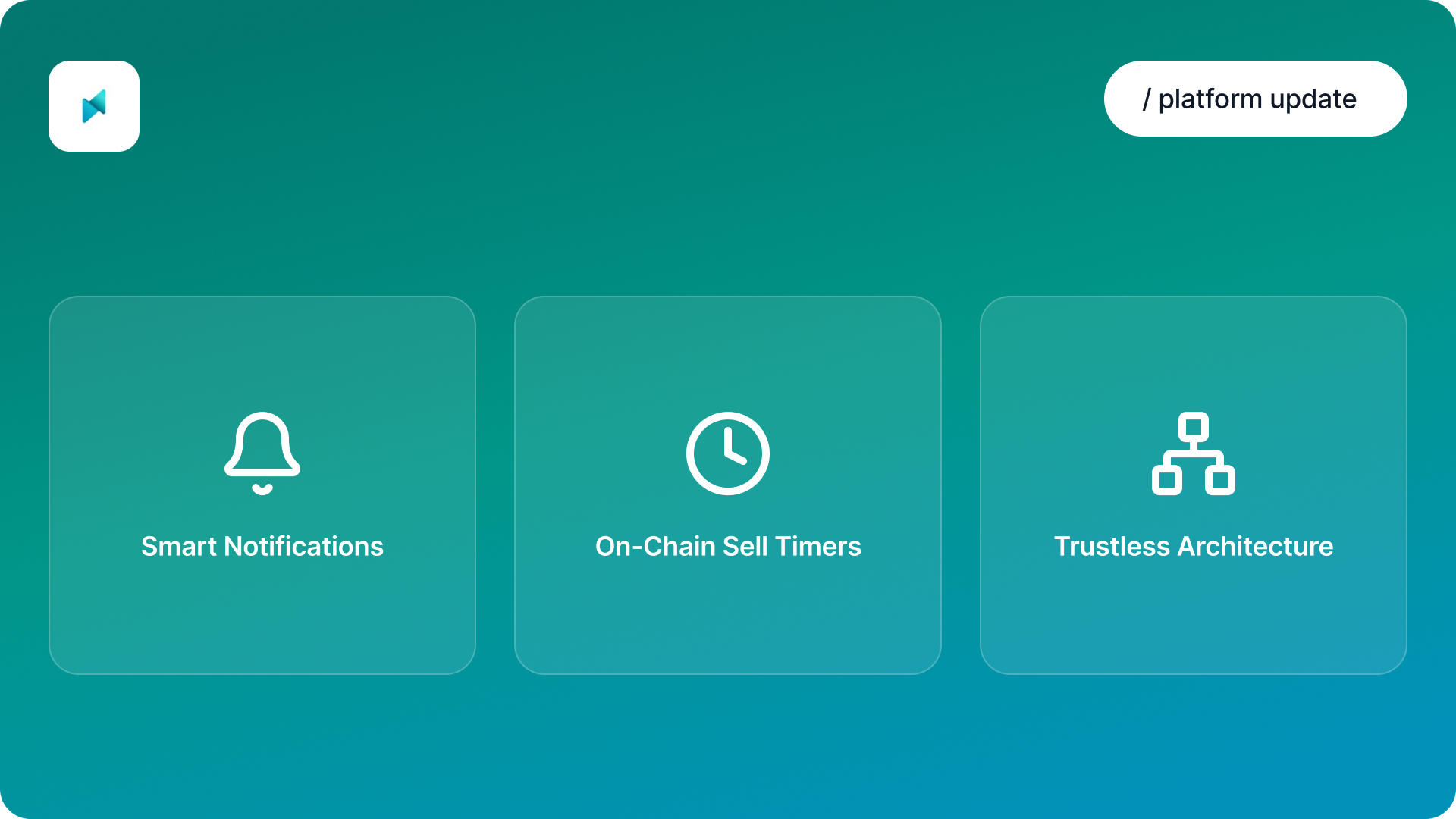

.webp)